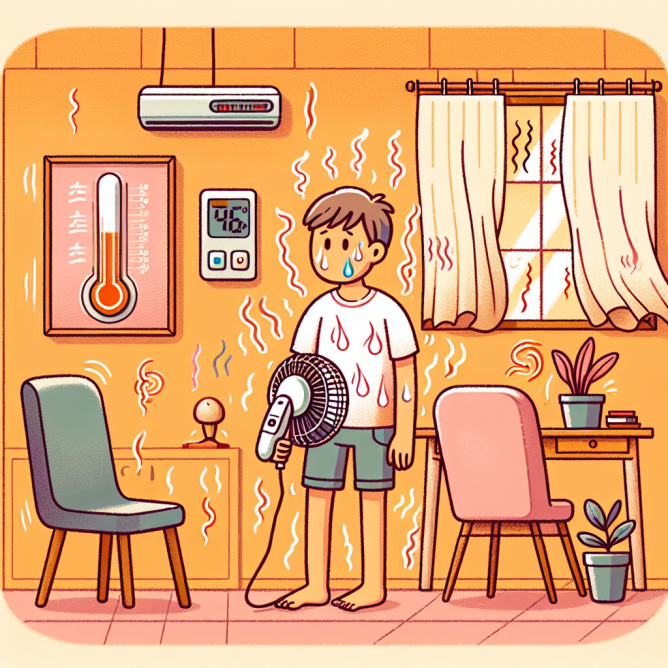HRT Hot Flashes: Understanding and Managing Menopause Symptoms
Menopause is a natural phase in a woman’s life, marking the end of her reproductive years. However, it can also bring about a range of uncomfortable symptoms, including hot flashes. Hot flashes, also known as vasomotor symptoms, are sudden feelings of warmth or heat that spread throughout the body, often accompanied by sweating and blushing. In this article, we will explore the causes of hot flashes during hormone replacement therapy (HRT), how to manage them, and the potential risks and benefits of HRT.
Causes of Hot Flashes during HRT
HRT involves the use of hormones, such as estrogen and progestogen, to replace the decreased levels of these hormones during menopause. While HRT can alleviate many menopause symptoms, it can also trigger hot flashes in some women. The exact cause of hot flashes during HRT is not fully understood, but it is believed to be related to the way the body processes and responds to the hormones.
Estrogen is known to play a role in regulating body temperature, and low levels of estrogen during menopause can lead to hot flashes. HRT replaces this lost estrogen, but it can also cause fluctuations in estrogen levels, leading to hot flashes. Additionally, some women may be more sensitive to the effects of estrogen, making them more prone to hot flashes.

Progestogen, which is often used in combination with estrogen to prevent endometrial cancer, can also contribute to hot flashes. Progestogen can cause fluctuations in body temperature, leading to hot flashes.
Managing Hot Flashes during HRT
If you are experiencing hot flashes during HRT, there are several strategies you can use to manage them:
1. Lifestyle changes: Simple lifestyle changes can help to reduce the frequency and intensity of hot flashes. These include:
– Dressing in layers: This allows you to easily remove clothing as you feel a hot flash coming on.

– Avoiding triggers: Certain foods, drinks, and activities can trigger hot flashes. These include spicy foods, caffeine, and alcohol.
– Relaxation techniques: Practicing relaxation techniques, such as deep breathing and meditation, can help to reduce stress and anxiety, which can trigger hot flashes.
2. Medications: There are several medications that can help to manage hot flashes during HRT. These include:
– Selective serotonin reuptake inhibitors (SSRIs): These are commonly used antidepressant medications that can also help to reduce hot flashes.
– Gabapentin: This medication is commonly used to treat seizures and neuropathic pain, but it has also been shown to be effective in reducing hot flashes.
– Clonidine: This medication is commonly used to treat high blood pressure, but it has also been shown to be effective in reducing hot flashes.
3. Alternative therapies: Some women may prefer to use alternative therapies to manage hot flashes during HRT. These include:
– Acupuncture: This traditional Chinese medicine involves the insertion of thin needles into specific points on the body. It has been shown to be effective in reducing hot flashes.
– Herbal remedies: Certain herbal remedies, such as black cohosh and soy, have been shown to be effective in reducing hot flashes.
Potential Risks and Benefits of HRT
While HRT can be effective in managing menopause symptoms, it is not without risks. The potential risks of HRT include:
– Increased risk of breast cancer: Long-term use of HRT has been associated with an increased risk of breast cancer.
– Increased risk of blood clots: HRT can increase the risk of blood clots, which can lead to serious complications, such as stroke and heart attack.
– Increased risk of dementia: Long-term use of HRT has been associated with an increased risk of dementia.
The potential benefits of HRT include:
– Reduced risk of osteoporosis: HRT can help to prevent bone loss, reducing the risk of osteoporosis.
– Reduced risk of colon cancer: HRT has been shown to reduce the risk of colon cancer.
– Improved mood: HRT can improve mood, reducing symptoms of depression and anxiety.
Conclusion
Hot flashes are a common symptom of menopause, and they can be exacerbated by HRT. While lifestyle changes, medications, and alternative therapies can help to manage hot flashes during HRT, it is important to weigh the potential risks and benefits of HRT. Women should discuss their individual risks and benefits with their healthcare provider to determine whether HRT is right for them. By working with their healthcare provider, women can develop a personalized treatment plan that addresses their unique needs and concerns.

